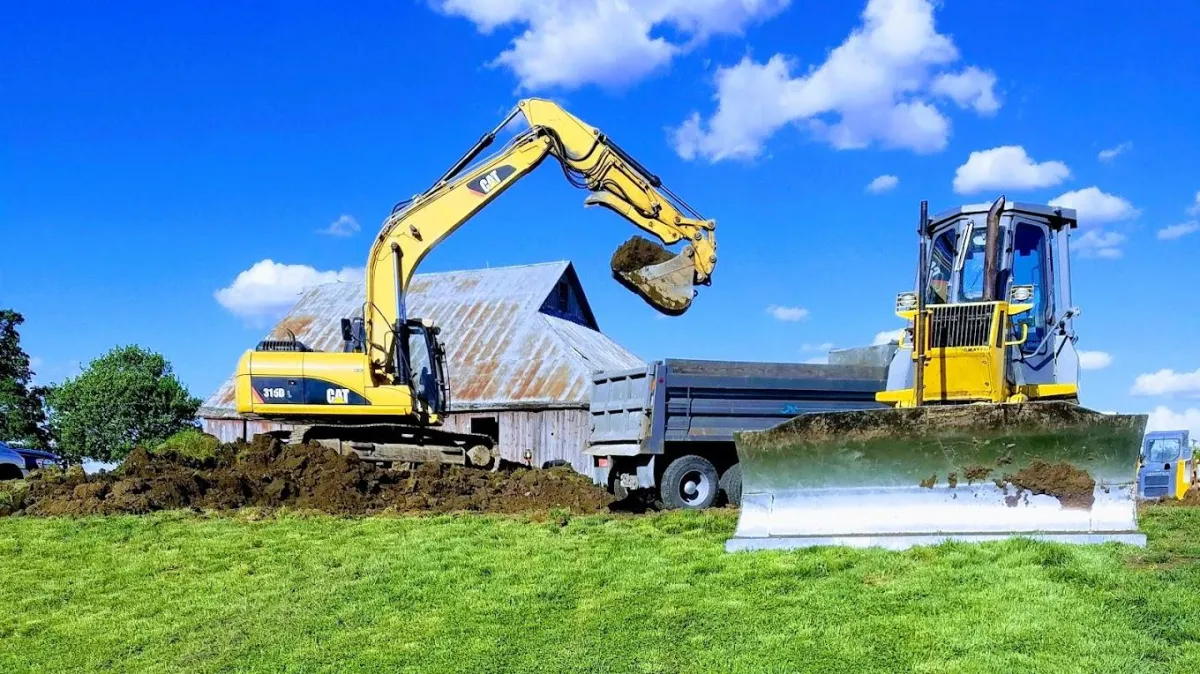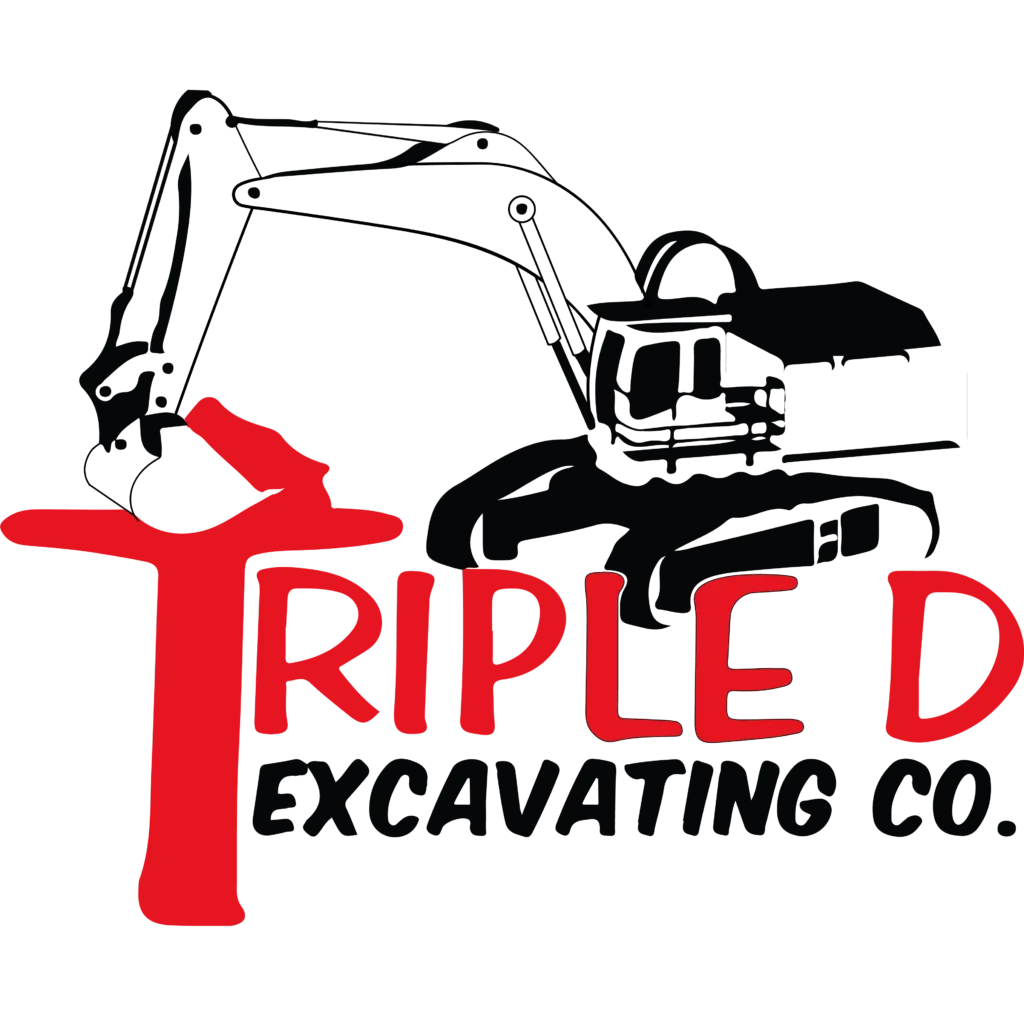Licensed, Bonded & Insured | Family Owned & Operated
049-012803 IL | IL Pumping License: 054-021753 | IA Pumping License: 12839
22 YRS. EXPERIENCE, FULL SITE PREP EXPERTS - HOW CAN WE HELP?

Cost of Drain Field Replacement Near Rock Island County | Triple D Excavating
1. Why Homeowners in Rock Island County Are Worried About Their Drain Field
If you’re reading this, you’re probably standing in your backyard wondering why the ground feels like a sponge—or worse, you’ve already gotten a whiff of something no one should ever have to smell near their home. Your drain field is acting up, and you’re trying to figure out what it’s going to cost you, how fast it needs to be fixed, and who you can trust to help.
It’s overwhelming. We get it. Septic issues are the kind of problem that sneak up on you, then quickly turn into a full-blown panic. You don’t want to throw money at the wrong fix. And if you're like most homeowners in Rock Island County, you’d really prefer not to dig up your whole yard unless it’s absolutely necessary.
That’s where this guide comes in. We’re Triple D Excavating Co., and while we’re not some big-name corporation, we’ve spent enough time in local soil to know exactly what you’re up against—and how to help you through it without making it worse (or more expensive).
2. What a Drain Field Does (and Why It’s a Big Deal When It Fails)
Your drain field—also called a leach field—is where all the wastewater from your septic tank goes to be filtered back into the soil. It’s made up of perforated pipes buried under the ground. These pipes let the water seep out slowly into the surrounding soil, where nature does the final clean-up.
But when a drain field fails, nothing drains. Water backs up. Grass turns swampy. Sewage can rise to the surface. Inside, toilets might flush slowly, or not at all. It’s not just gross—it can be a health risk and a code violation, too.
That’s why fixing or replacing a drain field is so important, and why it matters who does the work.
3. How to Know If You Need a Drain Field Replacement
Here’s the good news: not every drain field problem means you need a full replacement. Sometimes it’s just a clog or a saturated spot that needs some attention. But here are signs you might be looking at a full replacement:
Your yard has soggy, smelly patches—even when it hasn’t rained
Toilets and sinks are backing up or draining slowly
You’ve already tried pumping the septic tank, and the problem keeps coming back
Water is pooling near the drain field or septic tank
A professional inspection says your field is “failing” or “non-functional.”
If you’re noticing two or more of these, it’s time to call someone for an honest opinion. (And yes—honest opinions still exist.)
4. The Real Cost of Drain Field Replacement in Rock Island County
Let’s talk numbers. On average, drain field replacement near Rock Island County costs between $6,500 and $14,000, depending on several factors we’ll break down in a second.
Now, we know that’s a wide range. And we know $10,000 isn’t something most people have lying around. That’s why understanding what drives the cost can help you make smarter choices that don’t leave you with buyer’s remorse (or worse, a yard that still smells like a sewer).
5. What Impacts the Price? (Soil Type, Yard Size, Access & More)
Every drain field is a little different. Even in the same town, two houses on the same street might need different solutions. Here’s what affects your price:
Soil Type: Clay, sand, loam—each drains differently. Clay soil (common around Rock Island) often needs wider trenches or an engineered system.
Yard Access: Can machinery get to the work area easily? Tight spaces or obstacles like fences, trees, or retaining walls add labor time.
System Size: A three-bedroom house needs a smaller drain field than a five-bedroom with a finished basement and three bathrooms.
Depth of the System: Deeper trenches = more excavation = more cost.
Permit Requirements: Some towns or counties require permits or inspections that come with added fees.
It’s kind of like asking how much a car costs—it depends if you’re buying a used sedan or building a custom truck from scratch.
6. Drain Field Replacement: What’s Included in the Price?
When you get a quote from a legit contractor (not some guy with a backhoe and a truck), here’s what should be included:
Septic system evaluation
Permits and local health department paperwork
Excavation and removal of old drain lines
New pipe or chamber system
Crushed rock or other bedding material
Soil testing and grading
Final inspection and system sign-off
Clean-up and backfill
If a price sounds too good to be true, check the fine print—sometimes it is.
7. Cheap vs. Quality: Why Cutting Corners Can Cost You Later
It’s tempting to go with the lowest bid. But here’s the deal: if the system isn’t installed right, you could be redoing it in just a few years.
We’ve seen “budget” jobs where:
The drain lines weren’t level, so water pooled and failed again
The wrong type of system was installed for the soil
Permits were skipped, and the county forced a redo
In Rock Island County, you really want this done right the first time. A good contractor will help you avoid long-term headaches, not just slap down some pipe and disappear.
8. How Local Homeowners Are Budgeting for Drain Field Work
Most folks don’t plan for a drain field bill. We get it. Some ways our local clients are managing the cost:
Financing through a home improvement loan
Home equity lines of credit (HELOCs) if the equity is there
Using tax refunds or savings as a down payment
Asking if partial payment plans are available (we try to be flexible when we can)
No one loves spending money on septic systems, but it’s better than dealing with a full system failure and property damage.
9. What to Ask Before Hiring a Drain Field Contractor
Here’s a quick checklist:
Are you licensed and insured for septic work in Illinois?
Do you pull the necessary permits?
Have you worked in my town or county before?
Can you explain why you’re recommending this specific type of system?
Is clean-up included in the price?
Do you offer any kind of workmanship warranty?
You don’t need to know everything about septic systems—you just need to know what they know. If they can’t explain things in plain English, keep shopping.
10. How We Help at Triple D Excavating Co. (Without Overselling It)
At Triple D Excavating Co., we’re not the biggest operation in Illinois—and that’s fine by us. We’d rather focus on doing good work for people right here in our community.
We’ve helped homeowners all over Rock Island, Henry, Knox, Mercer, and Muscatine Counties figure out what their drain fields actually need—no scare tactics, no pressure. We listen. We explain. And then we get to work fixing the problem in a way that fits your home, your land, and your budget.
Because we live here, too. We’ve walked these yards. We’ve dug in this soil. We’ve seen what works—and what doesn’t.
Final Thought
Drain field problems are messy. But getting a fair price and a solid fix doesn’t have to be.
If you’re unsure what to do next, start with a conversation. No pressure, no jargon. Just clear answers about your land, your options, and what it’s really going to cost.

AVOID COSTLY MISTAKES:
Do NOT hire an excavating contractor without first reading our free guide:
The ULTIMATE Excavation & Septic "Success Guide."

We Offer Excavation Services NearYou!
If you don't see your specific area, contact us and we may still be able to help or give a referral.
All rights reserved | Privacy policy



